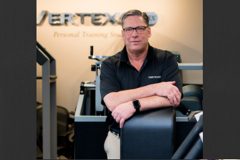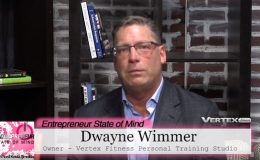Should I Eat Before My Morning Workout?
Morning workouts aren’t for everyone, but for those of us who love them (or just love to get them over with early in the day!), deciding whether to eat breakfast before or after a morning workout is a common dilemma.
Head straight out the door for a morning bike ride without eating or drinking, and you may not have enough in the tank to power through it. That’s because over the course of the night your carbohydrate stores, which your muscles rely on for energy during exercise, have been used to maintain your blood sugar and provide energy to your brain. On the other hand, eating a full meal before working out could lead to stomach cramping or indigestion.
The good news is, it’s possible to be properly fueled for a morning workout without the unpleasant side effects that send you running to the nearest restroom. It’s all about what you eat, and when you eat it.
-
Time it right
As a general rule of thumb, when it comes to pre-workout eating, you can time it any way you like, but the closer you get to a workout, the more simple the meal should be. If you eat two to three hours before, you’ll have time for your food to digest and be absorbed from your GI tract into your blood. Therefore, you can eat a more complex meal containing protein, fat and fiber, which take longer to break down.
Within an hour of a workout, however, you should eat something that will be digested and absorbed more quickly, like a small bowl of cereal or a piece of fruit.
Not only is undigested food useless as fuel, it can feel heavy in your stomach, leading to cramps and sluggishness.
-
Assess intensity
Now don’t go thinking simply lacing up your sneakers justifies a big, hearty snack! The amount of effort you put into your workout will dictate what you should be consuming prior to exercising.
The higher the intensity, the smaller the meal or the further out you want to eat. You don’t want your body to be expending any extra energy on digestion when you need it to perform.
If you’re going out for a 30-minute morning walk, you don’t have to shove food in your mouth to fuel up.
A lower intensity workout doesn’t require as much energy as a demanding one. For example, if you’re planning on burning only 350 calories on the elliptical, a 200-calorie snack isn’t needed. And, as a general rule, if you’re going to exercise within a few hours of a meal, those are the times you may be better off skipping your pre-workout fare.
-
Fuel up
So, how should you pre-game for maximum performance? Two or three hours before a moderate intensity workout, a somewhat complex meal like a sandwich on whole grain bread with lean protein, roasted vegetables and avocado is a good option because you’ll have time for your food to get digested and absorbed from your GI tract into your blood.
On the contrary, if you plan to do the same workout within one to two hours, a small bowl of low-fiber, whole-grain cereal like puffed brown rice or corn flakes with skim milk is ideal. The cereal will provide easy to digest calories for quick energy while the milk provides sustaining protein. Oatmeal with a banana will provide the same benefits for individuals looking for a simpler meal option.
For workouts with an hour or less lead-time, smaller snacks like Greek yogurt or low-fat chocolate milk are good options. And, if you do happen to find yourself heading out the door as your stomach starts to rumble, you can’t go wrong with a small piece of fruit, like an easy-to-digest banana.
Before Your Morning Workout
30-60 minutes before you lace up your sneakers, have a carbohydrate-rich snack, like a piece of fruit, a slice of toast with jam, or a low-fiber granola bar.
Drink a tall glass of water to help digest your snack and rehydrate after those 8-12 hours of laying around.
Avoid fiber and fat since they take more effort for your body to digest and can cause an upset stomach.
If eating early in the morning doesn’t agree with you, have some applesauce or a small glass of 100% fruit juice. Just stay away from the more acidic juices like orange or grapefruit since they can irritate your stomach. You can also hydrate with a diluted sports drink instead of regular water. The added carbohydrates will help keep you going.
After Your Morning Workout
Enjoy a healthy breakfast that contains complex carbohydrates and protein within 1 hour following your workout. Doing so will replenish your energy stores and help build and repair muscle. Here are a few great post-workout breakfast ideas:
A yogurt parfait with granola, fruit, and a sprinkle of nuts or seeds
A smoothie made with yogurt, fresh or frozen fruit, and some avocado, peanut butter, flax, or chia seeds for a dose of healthy fats
Oatmeal (made with milk for added protein), topped with dried or fresh fruit, nuts, or nut butter
Eggs with sautéed veggies (think: spinach, tomato, caramelized onions), a slice of whole grain toast, and a cup of reduced-fat milk. Grab a piece of fruit or a handful of nuts if you’re still hungry.
Don’t sabotage your morning workout before you even get started. Eating the right things before and after will keep you fueled and help your body recover afterwards!
Do you exercise in the morning, too? What are some of your favorite workout-fueling foods?
“Should I Eat Before My Morning Workout?”, Written for Vertex Fitness Personal Training Studio by Ashvini Mashru, RD
Request a complimentary first session at Vertex Fitness, Voted the BEST Personal Training Studio on the Main Line
Click HERE and we will schedule a session to try it yourself
Complimentary First Workout Session








Leave a Comment